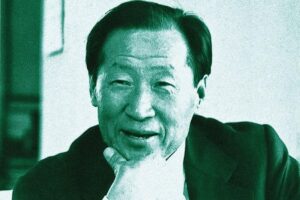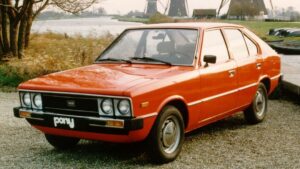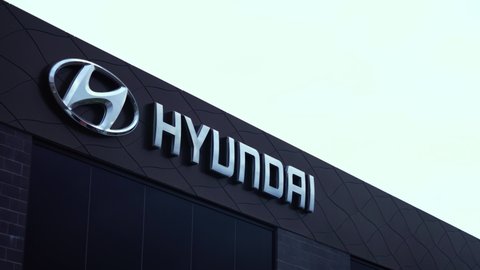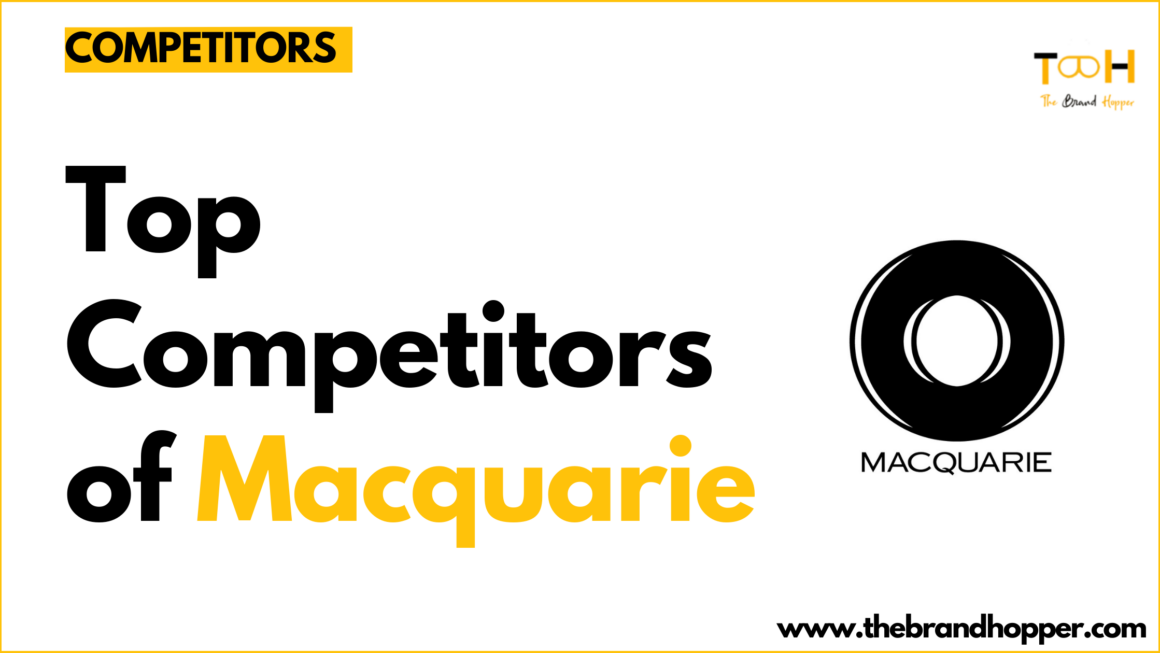Hyundai Motor Company is a South Korean multinational automotive manufacturer headquartered in Seoul. It is the world’s fifth-largest automaker by sales. Hyundai vehicles are sold in over 190 countries through a network of over 5,000 dealerships and showrooms.
Hyundai was founded in 1967 by Chung Ju-yung. In 1968, the Cortina was the very first vehicle successfully assembled by Hyundai at its Ulsan plant, in cooperation with Ford Motor Company. The company’s first car, the Pony, was launched in 1975. Hyundai’s early cars were known for their low prices and basic features. However, the company began to improve the quality of its cars in the 1980s. Hyundai’s breakthrough car was the Excel, which was launched in the United States in 1986. The Excel was a huge success, and it helped to establish Hyundai as a major player in the American market.
In the 1990s, Hyundai began to expand its lineup of cars. The company launched the Sonata, Elantra, and Santa Fe SUVs. Hyundai also began to export cars to Europe and Asia.
In the 2000s, Hyundai continued to expand its lineup of cars. The company launched the Genesis luxury sedan, the Azera midsize sedan, and the Tucson SUV. Hyundai also began to develop hybrid and electric cars.
Today, Hyundai is a major player in the global automotive market. The company’s cars are known for their reliability, value, and stylish design. Hyundai is also a leader in the development of new technologies, such as hydrogen fuel cell vehicles.
Here are some additional facts about Hyundai:
- Hyundai’s name means “modernity” in Korean.
- Hyundai’s headquarters are located in Seoul, South Korea.
- Hyundai has over 75,000 employees worldwide.
- Hyundai vehicles are sold in over 190 countries.
- Hyundai’s annual sales are over 7 million vehicles.
- Hyundai’s parent company is Hyundai Motor Group.
Hyundai is a global leader in the automotive industry. The company is committed to providing customers with high-quality, reliable cars that are both stylish and affordable.
History of Hyundai Motor Group
Hyundai Motor Group has a rich and dynamic history that spans over five decades. From its humble beginnings as a local car manufacturer in South Korea, the group has evolved into a leading force in the global automotive industry. Let’s delve into the key milestones and developments in the history of Hyundai Motor Group:
Hyundai Motor Group was established in 1967 by Chung Ju-Yung, a visionary entrepreneur. The group’s initial focus was on construction and engineering projects, but Chung recognized the potential in the automotive sector and set his sights on building a car manufacturing company.

In 1968, Hyundai Motor Company was founded as a subsidiary of Hyundai Engineering and Construction. The company’s first model, the Cortina, was developed in collaboration with Ford. However, Hyundai faced significant challenges in the early years due to limited resources and the perception of lower quality.
Determined to overcome these obstacles, Hyundai invested heavily in research and development, aiming to enhance its technological capabilities and improve vehicle quality. The company introduced its first independently developed model, the Pony, in 1975. The Pony became a breakthrough success for Hyundai, both domestically and internationally, establishing the brand’s reputation for affordable and reliable vehicles.

Hyundai Motor Company focused on expanding its global presence throughout the 1980s and 1990s. The company entered the U.S. market in 1986 with the introduction of the Excel, a compact car that gained popularity for its affordability. Hyundai’s growth was further facilitated by strategic partnerships and collaborations with industry leaders. Notably, in 1998, Hyundai acquired Kia Motors, forming the Hyundai Kia Automotive Group.
Hyundai made significant strides in improving its quality standards and design aesthetics, leading to an enhanced reputation for its vehicles. The company launched a brand transformation initiative called “Modern Premium,” emphasizing innovation, quality, and customer satisfaction. This transformation marked a turning point in Hyundai’s perception and elevated it to a higher level of brand equity.
Hyundai Motor Group has demonstrated its commitment to technological leadership and sustainability. The group has invested heavily in research and development, focusing on areas such as electric vehicles (EVs), fuel cell technology, and autonomous driving. Hyundai’s dedication to green mobility is evident through the launch of its eco-friendly models, including the Hyundai Ioniq and Hyundai Kona Electric.
Hyundai Motor Group’s continuous efforts in innovation and quality have garnered recognition and accolades worldwide. The group’s vehicles have received numerous industry awards, highlighting their design, performance, and safety features. Hyundai Motor Group’s global success is evidenced by its strong market presence and production facilities in various countries across continents.
As Hyundai Motor Group continues to evolve, it remains dedicated to shaping the future of mobility through its innovative vehicles and sustainable solutions. With a focus on customer satisfaction, cutting-edge technology, and environmental responsibility, Hyundai Motor Group has firmly established itself as a global automotive powerhouse, driving the industry forward with its vision and determination.
How has Hyundai established itself as a global brand? – Success Factors of Hyundai
Hyundai has established itself as a global brand through a combination of key success factors that have contributed to its growth and recognition in the automotive industry. Let’s explore some of these factors:
Product Quality and Reliability: Hyundai’s commitment to product quality and reliability has been a driving force behind its global success. The company has made significant investments in research and development, leveraging advanced technologies to create vehicles that meet or exceed customer expectations. By consistently delivering vehicles with high-quality build, performance, and durability, Hyundai has built a reputation for reliability and customer satisfaction.
Competitive Pricing and Value Proposition: Hyundai has positioned itself as a brand that offers exceptional value for money. By providing competitive pricing across its vehicle lineup, Hyundai has attracted budget-conscious consumers who seek quality, features, and performance at affordable prices. The brand’s ability to offer a compelling value proposition has been a key factor in its global market penetration and increased sales.
Innovative Design and Styling: Hyundai’s focus on innovative design and stylish aesthetics has played a crucial role in attracting consumers worldwide. The brand has embraced a fluidic sculpture design philosophy, characterized by sleek lines, dynamic curves, and contemporary styling. Hyundai’s commitment to eye-catching designs has resonated with customers seeking visually appealing vehicles, enhancing the brand’s global appeal.
Diverse Vehicle Portfolio: Hyundai offers a diverse range of vehicles designed to cater to different market segments and consumer preferences. The brand covers a spectrum of segments, from compact cars and sedans to SUVs and electric vehicles. This wide product portfolio allows Hyundai to target various customer needs and adapt to changing market demands, expanding its reach and appeal on a global scale.
Embracing Technological Advancements: Hyundai has demonstrated a commitment to embracing technological advancements and staying at the forefront of automotive innovation. The brand has invested heavily in research and development, focusing on areas such as electric vehicles, autonomous driving, and connectivity features. By integrating advanced technologies into its vehicles, Hyundai has positioned itself as a forward-thinking brand in line with the evolving demands of the industry and consumers.
Customer-Centric Approach: Hyundai places a strong emphasis on customer satisfaction and engagement. The brand actively seeks feedback from customers, conducts market research, and incorporates customer insights into its product development and improvement processes. Hyundai’s commitment to understanding and meeting customer needs has helped foster strong relationships and brand loyalty, contributing to its global success.
Global Manufacturing and Market Presence: Hyundai has strategically established manufacturing facilities and a robust global presence. The company has production plants in various countries, enabling localized production to cater to regional markets and reduce costs. Furthermore, Hyundai’s extensive distribution and dealership networks have facilitated its market expansion and strengthened its brand presence on a global scale.
Hyundai’s success as a global brand can be attributed to a combination of factors, including product quality, competitive pricing, innovative design, a diverse vehicle portfolio, technological advancements, a customer-centric approach, and a strong global manufacturing and market presence. Through these success factors, Hyundai has carved out a significant position in the automotive industry, gaining recognition and earning the trust of consumers worldwide.
Also Read: Top 10 Competitors of Hyundai: A Comprehensive Overview of the Automotive Market
To read more content like this, subscribe to our newsletter




